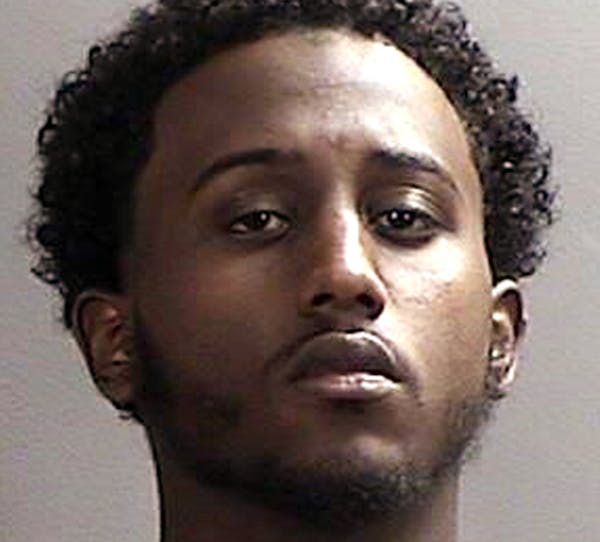A U.S. government-backed program to thwart terror recruiting among Minnesota Somali-Americans with mentorship and job training programs was met with widespread accolades from backers, but also pointed criticism from some Muslims who say a push for social services in their community should not be spearheaded by a federal prosecutor.
"This is exactly what Somali community leaders asked us to do a year ago. We promised we would do it and we are now delivering on that promise," U.S. Attorney Andrew Luger said at a news conference. He was flanked by religious leaders, nonprofit representatives, law enforcement and elected officials to unveil the $900,000 Building Community Resilience project.
Launched in June 2014, the pilot program, formerly known as Countering Violent Extremism is one of three launched across the country, with the others in Boston and Los Angeles. After 14 months of listening sessions and consulting with nonprofits, Luger unveiled a series of proposed projects, paid for with $390,000 in private funding, $250,000 from the state and $216,000 in federal dollars.
They include:
• A mentoring partnership with Big Brothers Big Sisters geared toward Somali kids, paid for with a grant from the Carlson Family Foundation.
• A pilot youth leadership program funded by Cargill Corp. for promising Somali students.
• A grant from the Ghermezian family, owners of Mall of America, for youth-led programs in the Somali community.
• "Opportunity hubs" in the Cedar-Riverside neighborhood to connect Somali youth with job skills and employers.
• Job fairs led by the Transportation Security Administration and Customs and Border Protection geared toward the Somali community.
• Housing for large families through the city of Minneapolis
• Grants for culturally specific autism awareness training.
In the midst of prosecutions for alleged would-be terrorists, it's important to make clear that every Somali is not part of the problem, and to get involved early, said Abdimalik Mohamed, a member of the Somali-American Task Force, which represented a cross-section of Somali leaders who provided Luger's office with input.
"Permanent victories over terror recruitment and the violent ideologies that support it are not found on the battlefield, but rather in mind-sets, and within communities," Mohamed said.
Private and federal grant money will be distributed through Youthprise, an independent organization that will act as an intermediary. Youthprise will begin outreach in early fall, and organizations will likely be able to apply by December or January.
The news conference ended with a prayer by Imam Abdisalam Adam that promises are kept, that parents not worry about their children, and that houses of worship remain welcoming places of peace.
Luger's news conference came hours after Hanad Musse, 19, pleaded guilty in federal court in Minneapolis to conspiring to provide material support to the Islamic State of Iraq and the Levant (ISIL). Luger declined to discuss the ongoing case because six remaining defendants await trial, but he acknowledged the connection.
"What you saw in court this morning with the guilty plea of a 19-year-old man underscores the importance and the urgency of the work everybody spoke of today," Luger said. "The terrorists will not stop trying to recruit our youth. We have to prevent them from being successful. Everybody is included in that 'we.' "
Some dissent
Not far away, four community and religious leaders met to again publicly decry the program, which they say is a Department of Justice initiative that stigmatizes the Muslim community. Anti-terror-recruitment programs should be run from within the community, they said, noting that the news conference launching the program came on the same day as Musse's guilty plea.
"I want to say very clearly, we categorically reject the pilot program," said Sadik Warfa, director of Somali Global Diaspora. "We don't believe government money solves problems. We have to help ourselves."
Jaylani Hussein, executive director of the Council on American Islamic Relations in Minnesota, noted that help is needed, but it's coming from the wrong place.
"It is important to recognize that our community is in need of social services," he said, "but we also believe that social services coming from a federal prosecutor create problems within our community. Those who receive funding from the FBI, from the U.S. attorney's office, will be seen as agents of these agencies."
Further, Hussein said the proposed programs may help the community, but are unlikely to stop terror recruiting.
Told that Luger has vowed that the program will not be used for intelligence-gathering, Warfa was not convinced.
"Who is he? He's a U.S. attorney," Warfa said. "He prosecutes in one hand, and in the other he says, I want to be involved in community engagement. He has to stick to his job and leave this community alone."
Luger countered that he's been asked by hundreds of Somali community members for government help with stopping terror recruitment.
"I looked them in the eye and said, 'I promise you, we will do something.' " Luger said. "Complaints are not a solution. Complaints are not a strategy."
As far as profiling and information-gathering, Luger brought Gloria Lewis, CEO of Big Brothers Big Sisters of the Greater Twin Cities, to the podium.
"Gloria," he asked, "Is your mentoring program that you so eloquently talked about today going to profile and surveil Somali youth for law enforcement?"
The answer, Lewis said, was no.
"We're in the business of mentoring and we would accept no one who comes to us and says that they want to monitor our kids," she said. "We have a brand to stand by and a reputation to stand by."
Abby Simons • 651-925-5043
Minneapolis to set up Lake Street Community Safety Center, and wants residents' help to define it
Searching for Snoopy: What happened to all the 'Peanuts' statues in St. Paul?
North Oaks withdraws request for density exemption from Met Council

Fall or spring, it's Rochester Mayo's year in prep tennis

